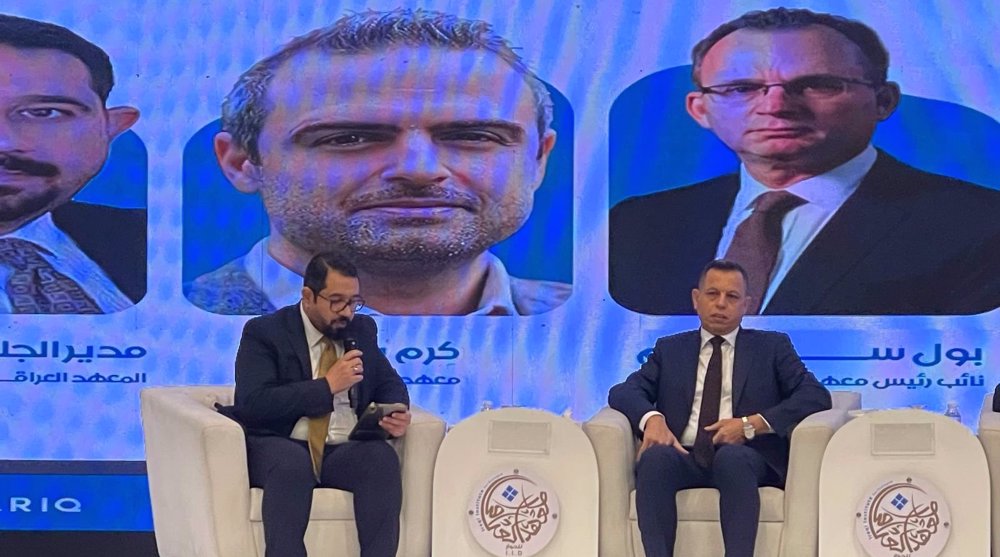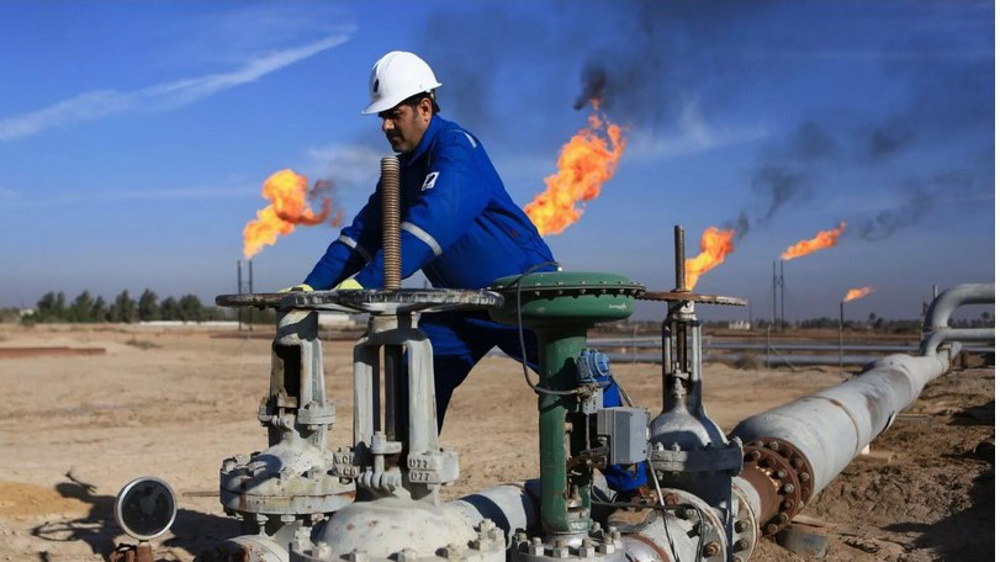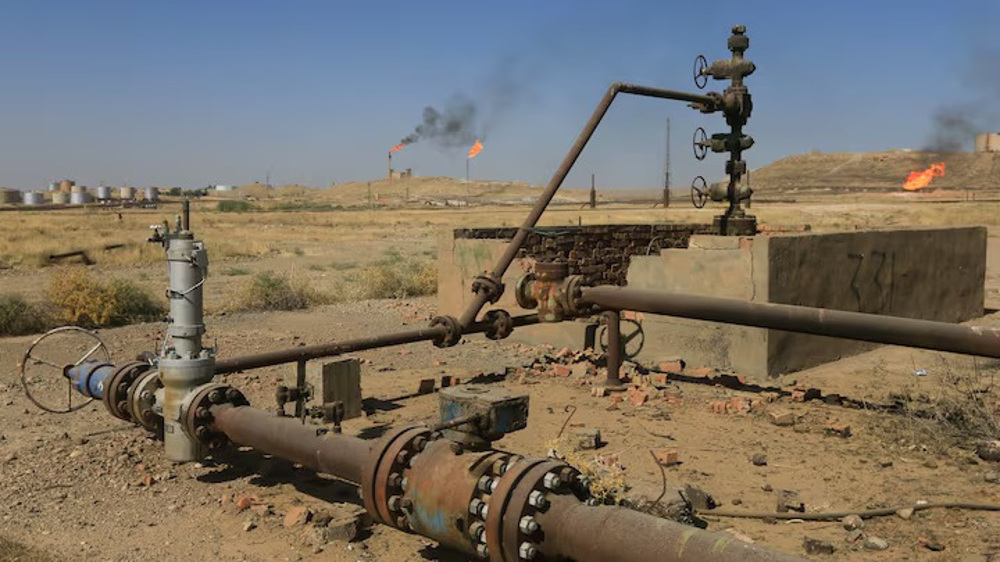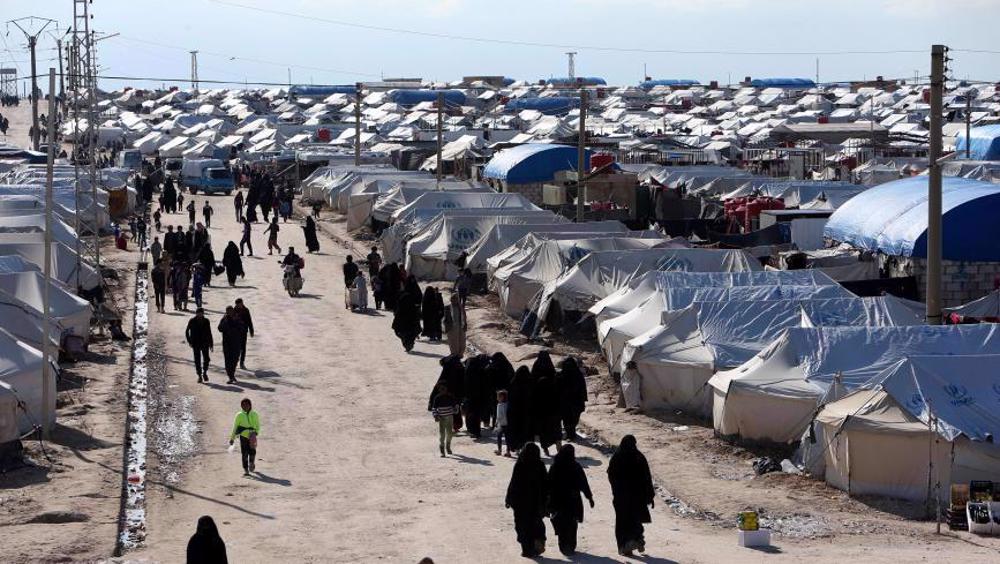US aims to prolong Iraq presence by relocating Daesh families from Syria: Analyst to Press TV
A Middle East expert says the United States is after the relocation of Daesh terrorists’ family members from Syria to Iraq in order to destabilize the latter and prolong the American presence on its soil.
These families might contribute to Daesh terrorists’ infiltration into Iraq “and hence, the US intends to bring them in to create instability and crises on the security and political levels here,” Iraqi security and Middle East expert Sabah al-Akili told Press TV in an interview on Wednesday.
He also referred to the US’s efforts targeting Iraq’s Popular Mobilization Units (PMU) or Hashd al-Sha’abi anti-terror force that has been playing a major role in confronting Daesh in the country.
“The US has started a hostile policy towards Hashd al-Sha’abi and its commanders,” the expert said, adding, “The reason for this is Hashd al-Sha’abi’s role in destroying Daesh, which had been bred by the White House.”
The Takfiri terrorist group emerged in Iraq and neighboring Syria in 2014.
In Iraq, its appearance was facilitated by the chaos that had developed as a result of more than a decade of US-led foreign interference. In Syria, the group’s rise coincided with sweeping militancy fueled by Washington and its allies.
The US used the outfit’s emergence as an excuse for huge military buildup in both countries. It has sustained the military presence, though the countries afflicted a crushing defeat on Daesh in 2017.
In order to try to incapacitate the PMU in the face of the terrorists and the US’s efforts to invigorate them, Akili said, Washington has begun targeting the anti-terror force with sanctions, assassination attacks, and other acts of sabotage.
An American drone strike martyred senior Iranian and Iraqi anti-terror commanders, Lieutenant General Qassem Soleimani and Abu Mahdi al-Muhandis, close to Baghdad International Airport early last year. General Soleimani, former commander of the Quds Force of Iran’s Islamic Revolution Guards Corps (IRGC) and Abu Muhandis, the PMU’s former deputy commander, used to steer anti-Daesh operations in Iraq and beyond.
Akili also referred to the recent arrest of Qasim Muslih, the PMU’s head of operations in the volatile western Anbar Province after accusations of his involvement in a series of attacks on US military forces and installations.
Suggesting a connection between the US’s intentions concerning Iraq and Muslih’s arrest, the analyst noted that the PMU official was among those opposing the transfer of Daesh’s family members from Syria’s al-Hol camp to the al-Jeddah camp in the northern Iraqi city of Mosul.
“The US administration is counting on its long-term presence in our country, and its exit would not be easy without its realizing its interests and goals in the region at a time that it is faced with the rival powers Russia and China,” he said.
Moscow and Beijing, he noted, constituted sources of danger to the US’s interests and control over the region, Akili said.
“Presence in Iraq also takes priority for the US because of the country’s geopolitical whereabouts in the [regional] sphere that hosts the confrontation between resistance movements and Washington’s domineering endeavors,” the pundit, meanwhile, noted.
Regional resistance outfits, including Iraqi ones, have specified expulsion of the US from the region and ending Washington’s most important regional ally Israel’s illegal presence here as their most important goal.
Towards the purpose, they have vowed to directly engage against the American and Israeli aggression throughout the region and join their forces with this end in sight.

Iraq warns Syria over security threats posed by Daesh remnants

Iraq denies it is resuming oil exports from Kurdistan under US pressure

US pressurizes Iraq to resume Kurdish oil export or face sanctions: Report
'Shocking attack on free expression': Canadian politician slams arrest of pro-Palestine activist
West Bank Palestinians fear Gaza style destruction as Israel escalates raids
Hamas: Ibrahimi Mosque massacre testament to Israel’s criminal policy
Trump eyes Ukrainian rare earth minerals in exchange for military support to Kiev
Six Gaza children, including newborn girl, die of cold weather as Israel blocks aid
Iran rules out nuclear talks with US amid ‘maximum pressure’ campaign
Israeli tanks roll into West Bank first time in 20 years as prelude to forcible annexation
VIDEO | Trump wants Ukraine's mineral wealth








 This makes it easy to access the Press TV website
This makes it easy to access the Press TV website